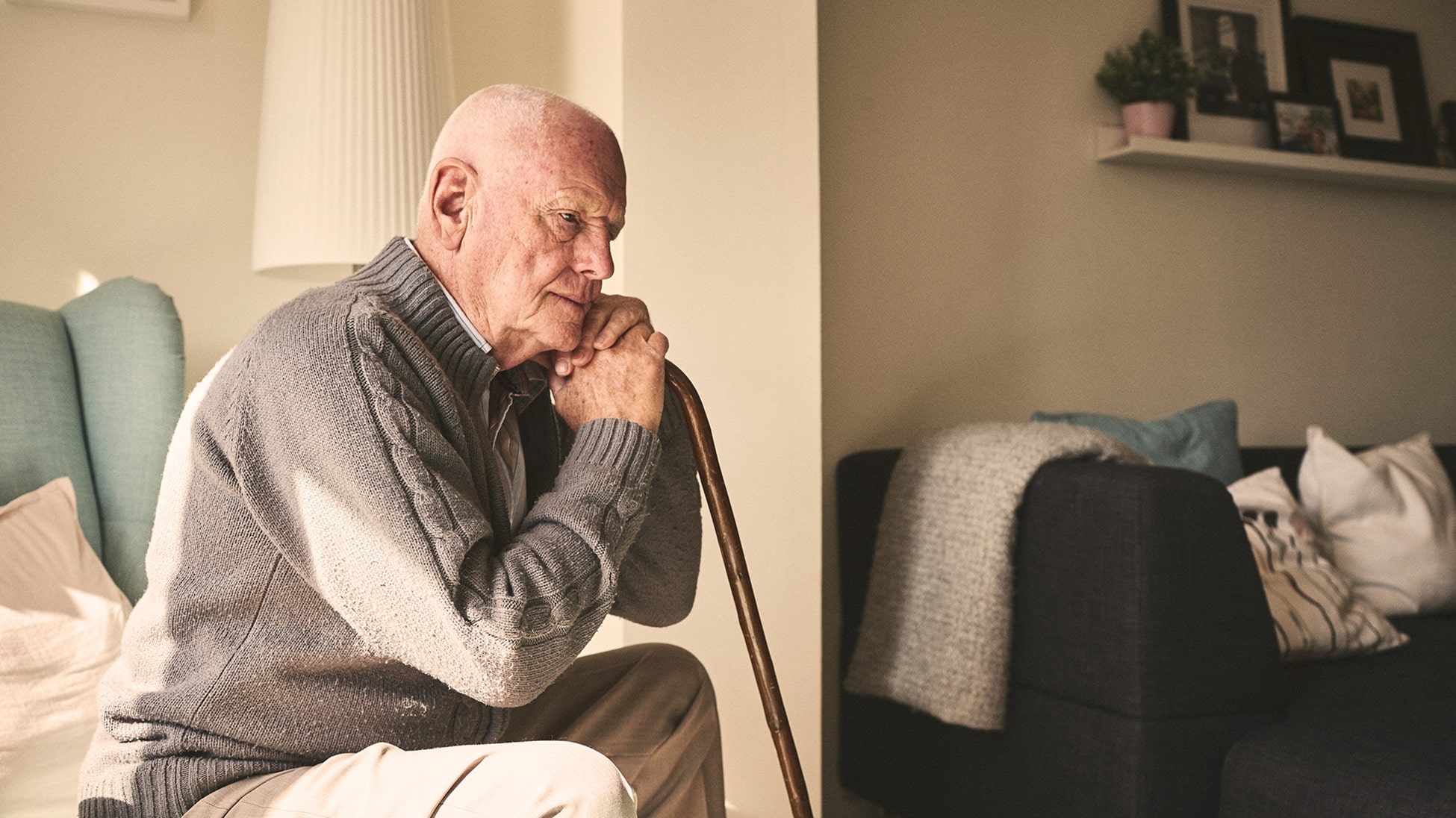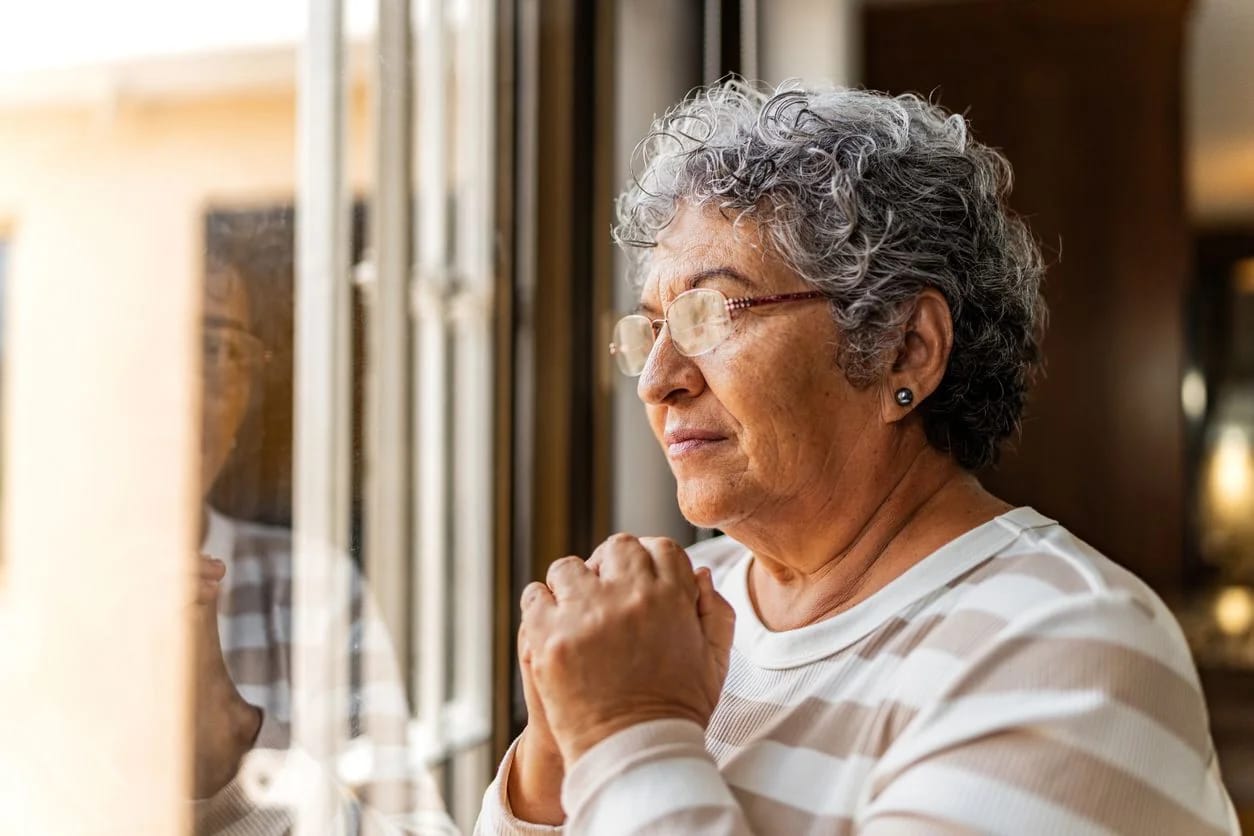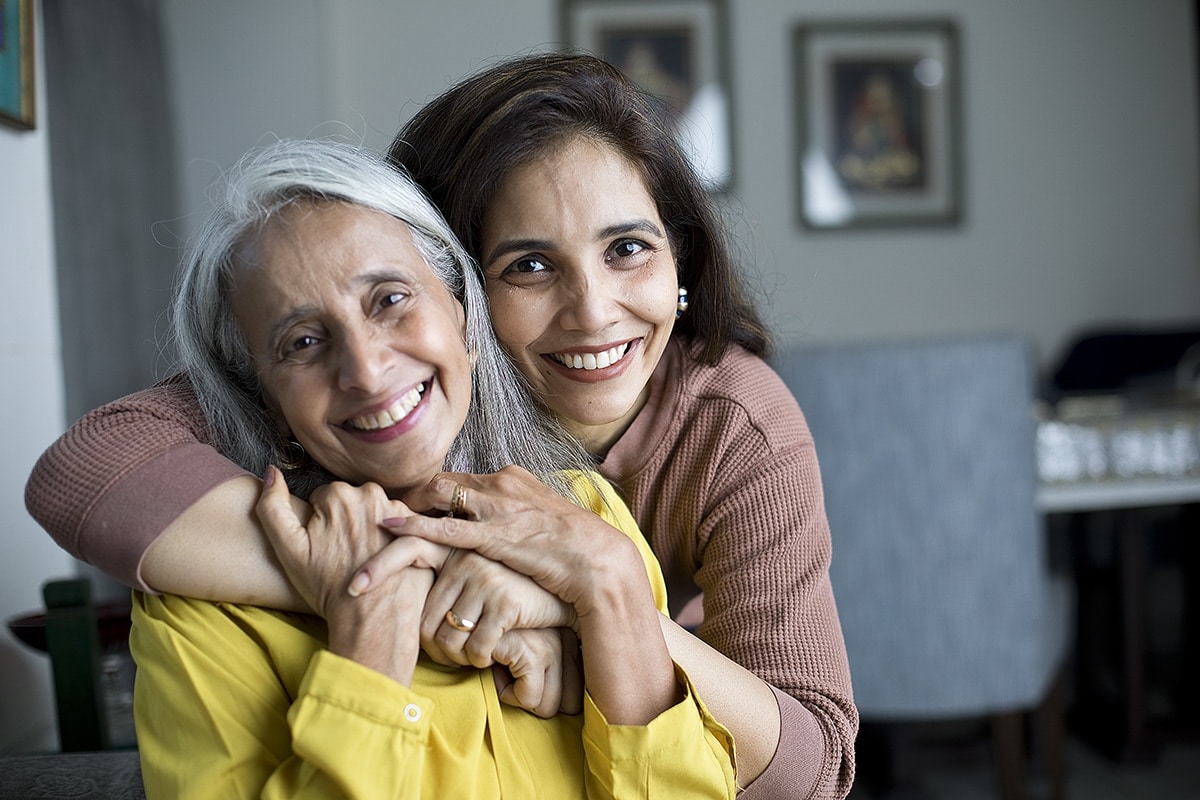Understanding the Effects of Loneliness and Senior Isolation

Did you know that elderly isolation is an epidemic that is creating many devastating effects? The Surgeon General recently rang the alarm about this public health crisis and is now calling for action to find a solution.
In the Surgeon General’s report, it states some shocking statistics and facts about loneliness and isolation, including that they can cause a:
- 29% increased risk of heart disease
- 32% increased risk of stroke
- 50% increased risk of developing dementia for older adults
- More than 60% increased risk of premature death
- More than doubled risk of depression
As you can see, especially for the elderly, social isolation’s effects are detrimental. Learn more about this epidemic below, and find ways to identify loneliness, explore solutions, and more.
Elderly Loneliness and Senior Isolation
The Cause of Social Isolation
There are many different causes of senior isolation. Some seniors have family who have moved far away; some may have spouses who have passed, so the remaining spouse is now growing old alone; while other older adults may not be able to drive or do not have access to transportation to help them remain connected.
These three points are most often the case, although there are many other reasons that could be contributing to this isolation and loneliness among seniors, including:
- Limited or no phone or internet contact
- Not having friends or neighbors nearby
- Retirement and less sense of purpose
- Lack of mobility
- Increased health needs
- Lack of financial resources
Signs of Loneliness in the Elderly
If you are concerned about social isolation and loneliness in your loved one, it’s important to search for some of the common signs. According to the AARP Foundation, these include:
- Boredom
- Lack of interest
- Withdrawal
- Declined personal hygiene
- Poor nutrition
- Disrepair and clutter around their home
Strategies To Combat Senior Loneliness
Talk with your loved one and listen to what they’re saying.
Your loved one may not need to travel far to feel a sense of connection. In fact, they might just need some moments of connection with you as their caregiver. Forget you’re their caregiver for the moment, and simply be their friend.
- Chat with them about things that excite them
- Ask questions about their past
- Inquire about how they are feeling
- Talk about their hobbies and passions
- Share some of your favorite memories with them
- Go through scrapbooks and reminisce about the past
- Begin a hobby together
Bring grandchildren over to visit.
No matter their age, interacting with grandchildren can be a great way to engage an older adult. New babies can help them recall their own parenthood experiences, toddlers to chase after can be an ideal source of exercise, younger children are an amazing source of laughter and joy, and older children are wonderful to talk to and share life experiences with.
Secure transportation for them.
If a loved one isn’t able to safely drive, perhaps setting up a schedule that helps get them out and about would be helpful. Consider setting certain days that your loved one does certain activities or attends certain clubs. Make sure they have transportation, and see if that helps them feel less lonely or isolated.
Consider having them join a club or social group.
There are plenty of groups available to enhance socialization, connectivity, and a sense of belonging. Consider signing them up for one of these groups:
- Gardening or bird-watching clubs
- A local sports league
- The Red Hat Purple Dress Society
- A volunteerism group
- Musical, theater or art groups
Get them involved in an activity.
Is there something your loved one is really passionate about? Consider this and evaluate whether there might be a club or activity that is tailored to their interests.
- If they love to educate, have them tutor students.
- If dogs and/or cats make them smile, see if they’d like to volunteer at a pet shelter.
- If music is their passion, consider having them learn a musical instrument or join a choir.
- If they’re computer savvy, encourage them to teach other seniors at the local library.
- If they’re quite the artist, see if they’d like to take art classes or even lead one.
- If you often find them reading, combine their love of books with socialization at a book club.
- If they can quote movie lines like no other, see if there’s a theater group around that they can participate in.
- If fitness is their passion, take them to classes where other seniors may be gathering.
You never know what you may find, so keep yourself and your loved one open to possibilities and see what might be available.
Evaluate whether a move to senior living would be helpful.
Moving to senior living can bring social opportunities right to your loved one’s door. Whether they’re joining a community’s clubs, sitting with new friends at dinner, attending events, enhancing their wellness with group fitness classes, or even routinely chatting up other residents, it’s a great way to be social while preventing loneliness.
Even better, you’ll feel more secure knowing that they’re happy, healthy, and well cared for, just as you’d care for them.
Loneliness and Isolation in Caregivers
We know that caring for a loved one can leave you feeling lonely and isolated, too. We’re here to help with some additional ideas to help you feel supported, alleviate your struggles, and enhance connection.
- Join a support group.
- Ask for advice from a local senior living community.
- Attend a senior living community’s events where you can connect with other caregivers.
- Take a break from caregiving to spend time with your friends and family.
- Join a social group with your loved one, where they can meet other seniors and you can meet other caregivers.
We’re Here To Help
If you’re starting to witness signs of loneliness and isolation in your loved one, we’re here to help. Reach out to learn more about our senior living communities that foster relationships for all residents in our inclusive and supportive environment.


